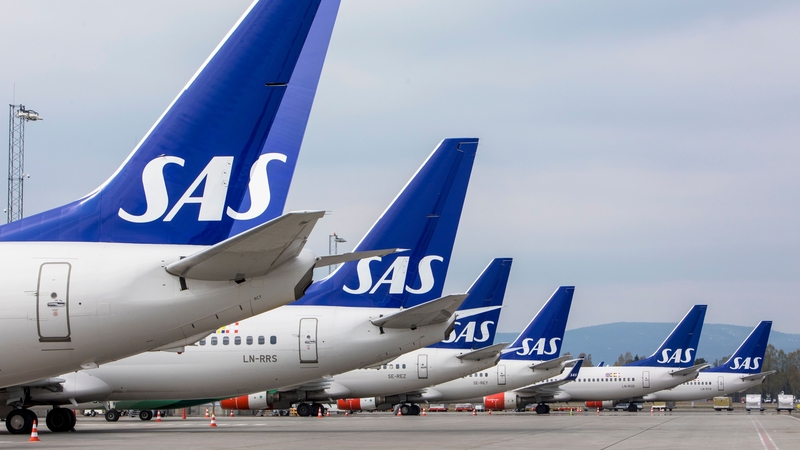Scandinavian airline SAS has today reported a bigger than expected pretax loss in the fourth quarter as high fuel costs and a weak Swedish currency weighed on its results.
Long-struggling SAS, which is under bankruptcy protection and bringing in new owners as part of a rescue plan, continued to underperform competitors such as Norwegian Air and Aer Lingus and British Airways-owner IAG.
The Swedish-Danish carrier reported a pretax loss of 2.11 billion Swedish crowns ($204m) in the August-October quarter compared to a year-earlier 1.70 billion loss.
SAS shares, which will become worthless after the bankruptcy proceedings are finished, were down almost 5% this morning.
"This report is a very clear testament that SAS is lacking way behind its competitors earnings wise," said Sydbank analyst Jacob Pedersen, who had expected a loss of 1.51 billion crowns.
"Competitors all around Europe are booking record results at the moment, and here's a huge deficit - so nothing really positive or anything to be excited about in this report," he added.
Norwegian Air and IAG posted forecast-beating profits in the July-September quarter.
CEO Anko van der Werff said the larger four quarter loss was primarily due to the weakness of the Swedish crown.
"If there's anything we ask Santa for this year it's lower inflation and of course a stronger krona in 2024," he said, adding he still believed the airline would achieve a pretax profit for the full 2024 fiscal year.
As of July, SAS had hedged 40% of the US dollars it expected to need in the next 12 months.
For the fiscal year just ended, SAS' pretax loss shrank to 5.52 billion crowns from 7.85 billion, falling short of a 4 billion to 5 billion crown range expected by the company.
SAS, which last year filed for bankruptcy protection in the US, said in October that airline Air France KLM and US investment firm Castlelake would become its new main owners alongside the Danish state and Denmark's Lind Invest, wiping out the stakes of its more than 250,000 owners.
The airline, which expects to be delisted from the stock market in early 2024, said it had decided to stop giving earnings guidance.
